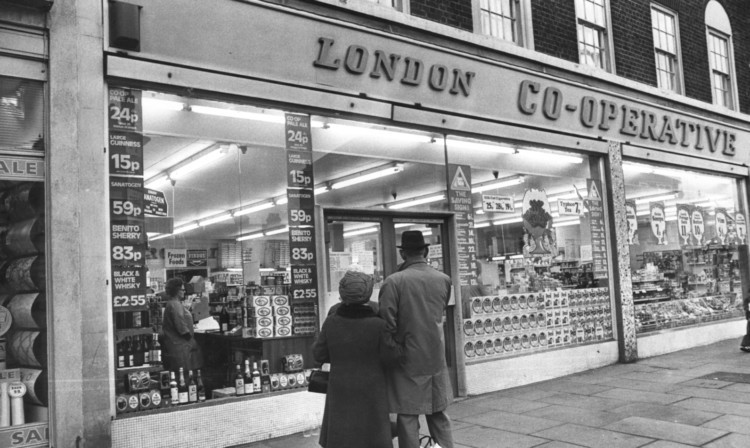
The Co-op bank has made a loss of £1.3 billion but it’s sorry. Is that alright then? Is it heck.
The mega loss was predicted when the bank failed to buy 632 branches from Lloyds Bank last year. That deal collapsed after a £1.5 billion black hole appeared in the balance sheet.
And that happened in part because chairman and former Methodist Minister, Paul Flowers, was busier buying drugs than counting cash.
And that happened because . . . ? Well that’s what the whole debate is about now.
Did the Co-op Bank nearly collapse because the whole idea of managing assets cooperatively is hopelessly woolly and happy clappy or is it quite the opposite?
Did the Co-op bank mess up by acting like all the other “big boys” when it snaffled up businesses it couldn’t afford, mis-sold insurance, made mistakes and tried to cover it all up?
I’d plump for the latter explanation but Lord Myners seems to disagree.
Last week, the former City Minister resigned from the Co-op Board after delivering a stinging business review.
He said the Co-op’s membership structure “produced Governors without the necessary qualifications and experience to provide effective leadership” with the result that directors couldn’t keep senior managers in check. In short, democracy and money don’t mix.
But wait a minute. There were no elected members overseeing Fred the Shred at RBS and he still made a right royal mess of things.
Sure, things got sloppy at the cosy, divvy-providing Co-op Bank. But no sloppier than at cut-throat, competitive, mega-bonus-providing High Street Banks like Lloyds and HBOS.
Co-ops are a great way to manage business, involve people, create long term jobs and keep profits in the community.
The smart Nordics know that almost all our newsprint comes from wood pulp produced by massive Finnish co-ops involving thousands of farmers and foresters. It’s one reason that country is doing better than us. Their instinct has always been to share risk and wealth not hog either.
Even in “grabbit and run” Britain, the loan default rate by cooperatives hasn’t been bad. Since 2000 it’s been less than 3%. But the new Co-op bosses aren’t interested in the old Co-operative model.
They’ve put all 15 Co-op farms up for sale, declaring food production is now “non-core” business. Wit? Being “good with food” is what the Co-op’s shopper loyalty was actually built on.
But in Scotland at least, there may yet be a silver lining. Folk living near one Rosemount one of the Co-op’s three Scottish farms have set up a steering group to explore the possibilities of a community buyout backed by the Scottish Government, the Land Fund, other cooperative farmers and campaigners who want to cut food miles and grow more wholesome food in communities. The Co-op to its credit has agreed to talk to locals.
If a deal looks possible they’ll consider taking Rosemount Farm out of a sale that could see other farms taken over by agribusiness, private equity companies, foreign nationals or speculators who want land to reduce inheritance tax bills.
Of course it’s early days. The Blair types might decide they’ve enough on their plates without fund-raising to buy and manage the 1,000 splendid acres of Rosemount. But they might just see a new cooperative dawn.
Co-op farms have always helped wildlife and biodiversity, offered farming apprenticeships, college training and arranged 65,000 visits from school kids last year alone. Community buyouts have seen local populations rise, and offered security at last to folk in tied houses like farm workers. Put that together and something special could be brewing out of the ruins of the Co-op.
And that surely would be everyone’s cup of tea.

Enjoy the convenience of having The Sunday Post delivered as a digital ePaper straight to your smartphone, tablet or computer.
Subscribe for only £5.49 a month and enjoy all the benefits of the printed paper as a digital replica.
Subscribe